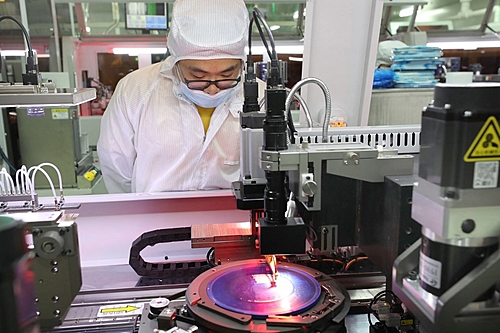
China has asked the World Trade Organization (WTO) to review semiconductor export practices in the US, Japan and the Netherlands. The information was released by the Chinese state press this Wednesday (5) and concerns the chip market, the processors that power cell phones, video games and are needed for more and more products, such as cars and household appliances.
The United States applies sanctions that prevent its companies from selling their most advanced chips to China, in an attempt to curb Chinese technological development. The White House is also pressuring other countries to also limit their trade with Beijing.
During a WTO meeting, representatives from China asked whether there is an agreement between the US, Japan and the Netherlands to prevent the sale of semiconductors.
“Relevant actors may have realized that the agreement directly violates WTO rules, so they deliberately kept the content of the agreement discreet,” Chinese officials said, according to the statement. CCTV.
According to the Chinese newspaper Global Times, China has already filed a WTO complaint against the US and is now doing the same against Japan. In late March, Japanese authorities announced plans to restrict exports of 23 types of semiconductor manufacturing equipment.
In the case of the Netherlands, the dispute involves the ASML. The company has a monopoly on manufacturing lithography machines on an industrial scale, which are very high-precision equipment used to manufacture chips (they project extreme ultraviolet light onto a silicon base and chemicals, which are transformed, forming connectors and transistors on the chip). ). China is trying to develop its own advanced lithography machine, but it is still far from having ASML results.
According to South China Morning Post, ASML Vice President Peter Wennink met Chinese Minister of Commerce Wang Wentao during a visit to Beijing last week. Chinese officials said in a statement that the discussion was aimed at creating a friendly environment for semiconductor companies and world market stability.
Still according to the South China Morning PostChina was responsible for 14% of ASML’s sales in 2022 and bought more than US$ 8.7 billion (about R$ 43 billion) from the Dutch company in the last decade.
Editing: Rodrigo Durão Coelho
Source: www.brasildefato.com.br

